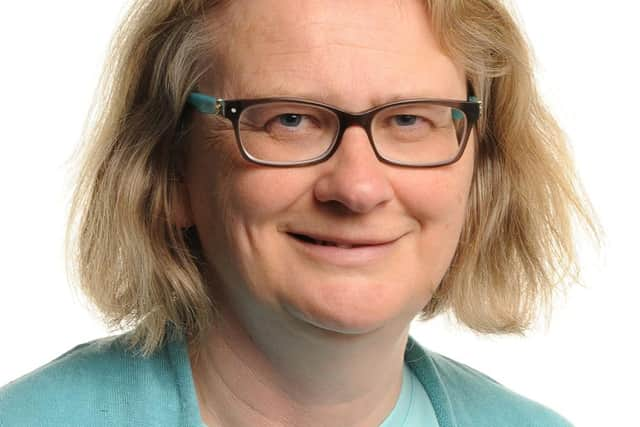Call for expansion of services as Huntington's disease rates in northern Scotland five times higher than rest of world
The Scottish Huntington’s Association called for support for those with the “hugely complex, widely misunderstood and extremely difficult to manage condition” to be expanded.
HD, which is hereditary, can impact movement, thinking processes and mental health, and those with the disease can eventually lose the ability to walk, talk, eat, drink and care for themselves.
Advertisement
Hide AdAdvertisement
Hide AdAn Aberdeen University study found the number of people in NHS Grampian who have the faulty gene that causes HD and also have noticeable symptoms has increased by 46 per cent since 1984.


The increased rate is partly due to increased awareness and new testing methods, researchers said.
They added that difference in prevalence across regions could lead to differences in delivery and cost of services.
Across northern Scotland 14.6 per 100,000 people have a diagnosis of HD and also have noticeable symptoms. The figure 36 years ago was 9.94 per 100,000.
Prevalence in the region is almost three times higher than that reported in Europe, North America and Australia, and more than five times the estimated worldwide prevalence of 2.71 per 100,000 people
Researchers think the high rates of diagnosis of HD in Grampian and Highland are due to the combination of underlying genetic susceptibility in the ancestral populations, increased awareness of the benefits of diagnosis (better care and support services) in affected families and medical practitioners, and the region having one of the oldest specialist HD research clinics in the world.
In the north of Scotland, even just over the last four years, 23 per cent more people without symptoms have had a genetic test to see if they will develop the condition - possibly because of the hope of taking part in trials that might slow down the disease.
Professor Zosia Miedzybrodzka of Aberdeen University, who led the study and is a consultant in charge of the NHS Grampian’s North of Scotland Huntington’s clinics, said: “Even in a country the size of Scotland, there is quite a variation in prevalence between different health board regions.
Advertisement
Hide AdAdvertisement
Hide Ad"This difference could have major drug cost and service delivery implications, especially if expensive, complexly - administered therapies prove successful. Health services should gather accurate population-based data on a regional basis to help inform service planning.”
Chief executive of the Scottish Huntington’s Association, Alistair Haw, said: “Whilst the increase in Huntington’s diagnoses across Grampian and Highland appears stark, what families in these areas have in their favour is access to a localised HD Care Framework backed by an HD Clinical Lead, an HD Specialist and specialist Financial Wellbeing and Youth service staff.
"However, in light of cases increasing by almost half over the period, local providers may wish to reflect on the requirement to expand these services to meet significantly growing demand.
“This requirement to expand services is likely to apply to NHS Boards nationwide. Huntington’s disease is a hugely complex, widely misunderstood and extremely difficult to manage condition - meaning specialist services are not some nice to have optional extra but an absolute necessity.”
A message from the Editor:
Thank you for reading this article. We're more reliant on your support than ever as the shift in consumer habits brought about by coronavirus impacts our advertisers.
If you haven't already, please consider supporting our trusted, fact-checked journalism by taking out a digital subscription.
Comments
Want to join the conversation? Please or to comment on this article.
